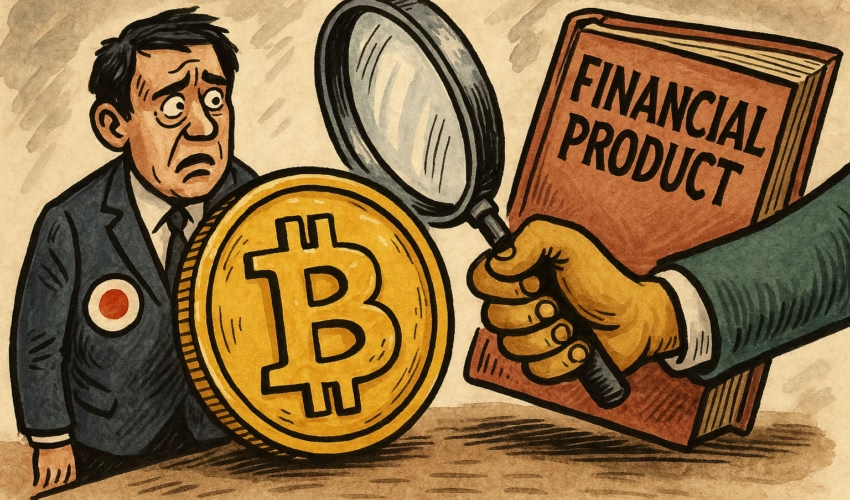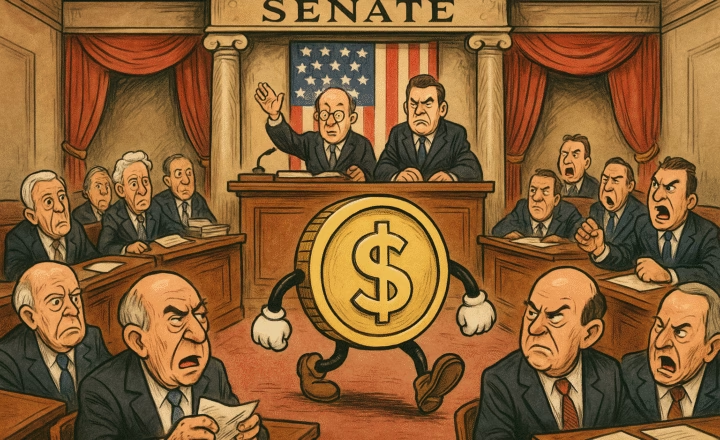FSA’s upcoming regulatory overhaul could reshape crypto’s legal status and increase compliance burdens across the industry
Overview
Japan is preparing to officially reclassify crypto assets as financial products, as part of a broader regulatory overhaul aimed at curbing insider trading and fraudulent token offerings, according to a report from Nikkei on Sunday. The move, spearheaded by the country’s Financial Services Agency (FSA), could mark a paradigm shift in how Japan governs digital assets and the companies that interact with them.
Currently, cryptocurrencies in Japan are categorized as means of settlement under the Payment Services Act, not as financial instruments. This distinction has historically allowed certain types of activity—especially around token issuance and information disclosure—to operate in a gray zone.
That legal loophole may soon close.
Why the Reclassification Matters
By amending the Financial Instruments and Exchange Act, Japan would place crypto in the same legislative framework used for stocks, bonds, and derivatives—at least from a market conduct perspective.
This change could carry major implications:
-
Insider trading regulations would explicitly apply to crypto assets, bringing token issuance and pre-market access under scrutiny.
-
Investor solicitation and marketing practices would face higher compliance standards.
-
Non-exchange entities—such as crypto funds, DAOs, or token-based investment schemes—may be required to register with Japanese regulators.
“The FSA sees increased scam activity and manipulation in the crypto sector and wants to apply more traditional financial enforcement tools,” Nikkei reported.
While crypto assets would not be classified in the same legal category as traditional securities like equities, they would likely be treated as a parallel class with overlapping regulatory responsibilities.
Regulatory Scope: Local Users, Global Firms
Perhaps most notably, the FSA intends to apply these rules to any company servicing Japanese citizens, regardless of whether the provider is based in Japan.
This extraterritorial ambition echoes moves from other jurisdictions like the U.S. SEC and France’s AMF, which have similarly sought to enforce rules on foreign crypto firms that interact with local users.
But enforcement remains an open question—especially for decentralized or offshore platforms. How the FSA plans to monitor or penalize non-compliant actors outside its legal reach has yet to be addressed.
Still, recent moves suggest Japan is preparing to take action.
In February, the FSA formally asked Apple and Google to block five unregistered overseas crypto exchanges from their app stores—a first-of-its-kind action in the Japanese market and a signal of what may come if foreign compliance falters.
Insider Trading Focus and Token Market Implications
The FSA’s interest in insider trading rules is particularly timely. Japan has experienced a spike in “scam coin” launches and pump-and-dump schemes, many of which use private Discord groups and anonymous influencers to manipulate price before mass liquidation.
Under the proposed regulatory shift, these activities could be prosecuted similarly to how stock manipulation and insider leaks are handled in conventional markets.
This could have a chilling effect on:
-
Token launches with limited transparency
-
Early-stage investment rounds involving undisclosed VCs or celebrities
-
“Alpha group” models that front-run token listings
While this may reduce the frequency of speculative launches, it could also raise the compliance bar for legitimate projects seeking to enter the Japanese market.
Japan’s Crypto Footprint: A Growing Market
Japan is not moving in a vacuum. As of January 2025, the country had over 7.34 million active crypto trading accounts, according to Nikkei.
That figure makes Japan one of the largest regulated crypto markets in Asia, with domestic players such as bitFlyer, Coincheck, and SBI VC Trade operating under strict FSA supervision. The upcoming changes suggest that even regulated firms may face tighter rules, especially when it comes to token sales, exchange listings, and information disclosure.
Strategic Perspective: Global Implications
For industry watchers, Japan’s shift signals two key trends:
-
A slow but decisive integration of crypto into traditional financial law
-
A blueprint for other jurisdictions considering how to deal with the convergence of decentralized assets and regulated markets
While countries like the U.S. and South Korea continue to debate stablecoin-specific or exchange-specific regulation, Japan is moving to overhaul the very legal foundation of how crypto is defined.
This could set a precedent, especially if the FSA succeeds in implementing insider trading laws tailored to the crypto ecosystem, which currently operates in a disclosure-light environment.
Conclusion: A New Era for Compliance in Japan?
The FSA’s planned reclassification of crypto assets as financial products may not happen until 2026, but the groundwork is clearly being laid now.
For exchanges, token issuers, and Web3 companies operating in or targeting Japan, the message is clear: regulatory rigor is coming, and the days of treating crypto as a semi-regulated asset class are numbered.
While this could raise compliance costs and limit innovation in the short term, it may also foster greater investor trust—a long-term win for a maturing crypto market.












